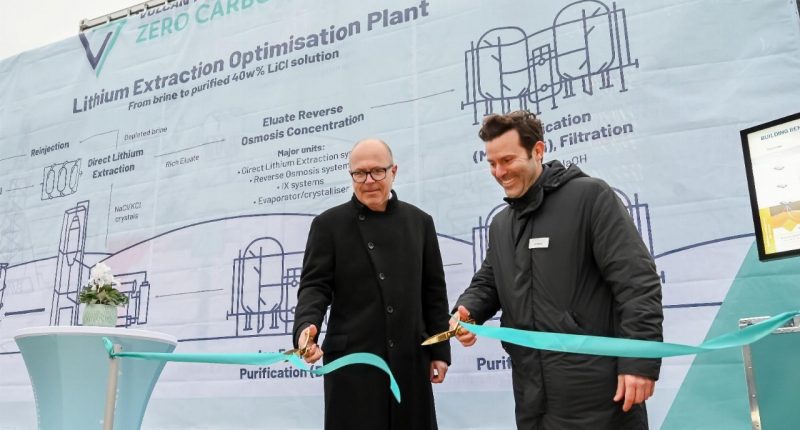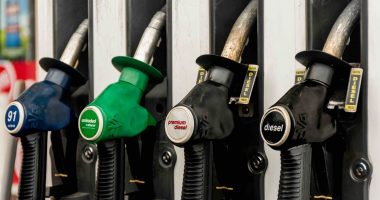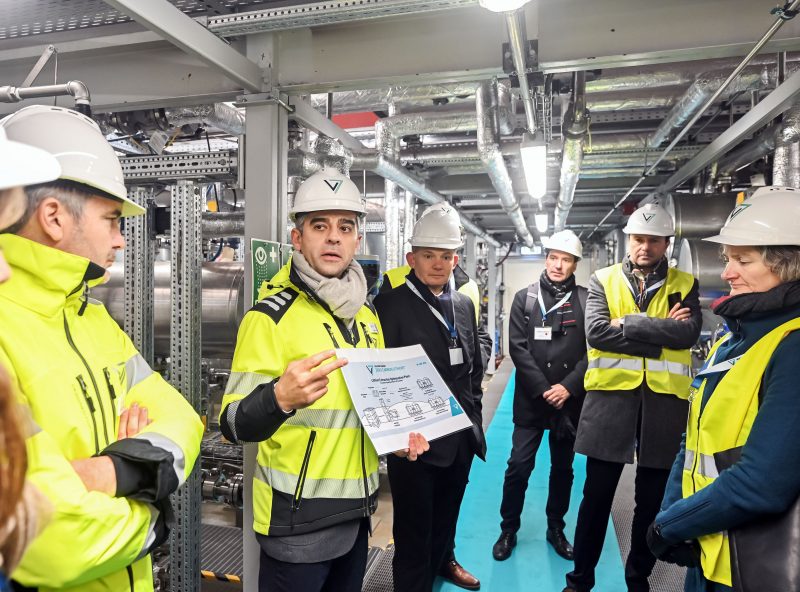
- After years of work, Vulcan Energy Resources (ASX:VUL) officially opens its EU LEOP in Landau, Germany
- LEOP stands for Lithium Extraction and Optimisation Plant (LEOP), an asset underpinning Vulcan’s EU strategy
- The company is seeking to extract geothermal power for home warming in the same breath it extracts lithium brine
- The company intends to make 42,000 tonnes per annum of lithium hydroxide per year for sale into EU battery metal supply chains
- Shares last traded at $2.27
Vulcan Energy Resources (ASX:VUL) has officially opened its Germany-based Lithium Extraction and Optimisation Plant (LEOP).
The facility saw its doors open on November 23.
The production team which will man the floor is currently receiving training. Production will ramp up in a staged fashion.
The company boasts the largest lithium resource in Europe. It acquired a licence for expansion into Frankfurt back in September.
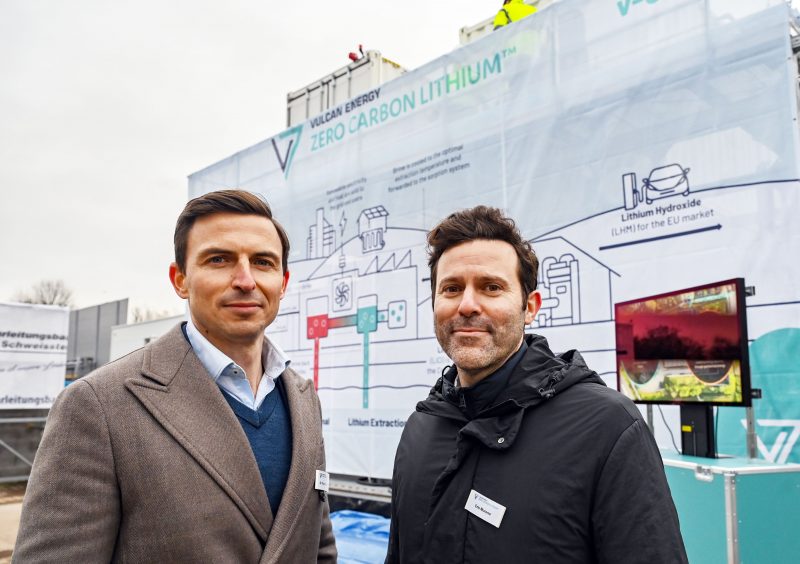
Carmaker Stellantis support
The unique LEOP asset will allow Vulcan to eventually extract geothermal power for heating into local homes while using that same energy to extract and refine lithium from brine.
Vulcan is geared up to produce 42,000 tonnes per annum of lithium hydroxide for sale into domestic EU battery metal supply chains.
Notably, international carmaker Stellantis is an investor in the project.
Utility provider & briner
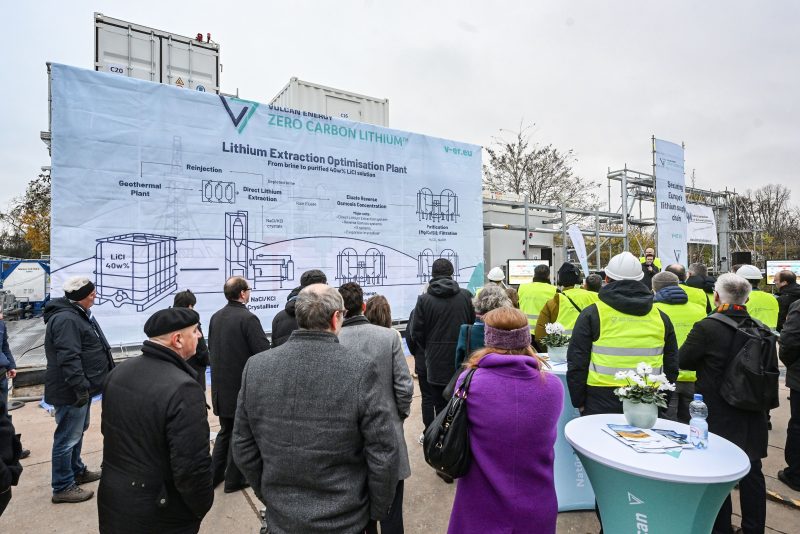
At the same time, it will also act as a utility provider, warming homes in the German Upper Rhine Valley region with renewable power.
The LEOP is a keystone element of the company’s Zero Carbon Lithium project, among the first lithium plays in the world to boast complete decarbonisation.
When it reaches full production, Vulcan expects the LEOP to assist it in producing the first fully domestically produced lithium chemicals in Europe.
This will also reflect the first tonnes of fully carbon-neutral lithium produced in the world.
All in all, the plant reflects a €40 million investment by Vulcan into its project, and, into the Upper Rhine Valley.
Adsorption benefits
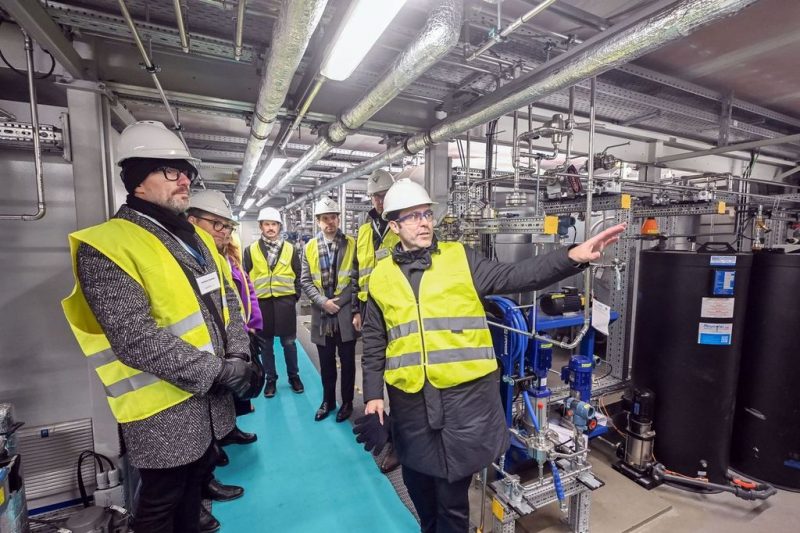
Vulcan Energy Resources is pioneering a well-established but relatively underused tech to create its lithium hydroxide feedstock: Adsorption-type Direct Lithium Extraction (A-DLE).
The process constitutes only 10 per cent of global lithium production today but demand is set to increase to 15 per cent in 2030, per FastMarkets research.
A-DLE type lithium boasts superior cost, purity and sustainability advantages, according to Vulcan. It also boasts over ten thousand hours of in-house pilot plant testing and monitoring.
Vulcan as a technology company
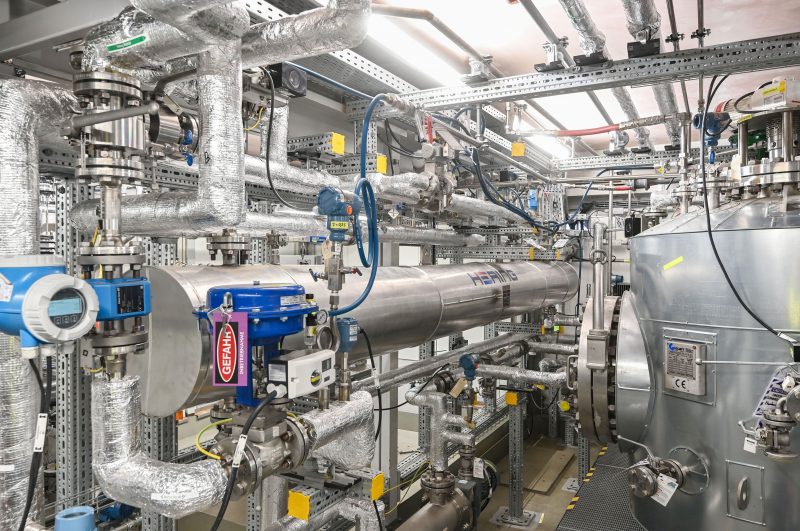
Its own in-house adsorbent, ‘VULSORB’, is intended to be used by Vulcan to enhance the lithium production process.
To this end, Vulcan positions itself as not only a briner and utility but also a technology company.
While lithium miners’ share prices typically track commodity prices, Vulcan’s management expresses a view that it should be perceived as inherently containing a premium.
Mining-extraction combo rare
Vulcan’s claim to fame is that it both mines and extracts its own lithium, a rarity in the West.
Most companies buy from Chinese or Russian lithium chemical technology solution providers – in other words, refiners.
“The start of operations at LEOP will signify the first lithium chemicals which will be produced in Europe with an entirely locally sourced value chain,” the company noted today.
“This means that Europe can not only produce its own locally sourced lithium for battery electric vehicles but also do so with a world-leading net zero carbon footprint.”
VUL shares last traded at $2.27.

